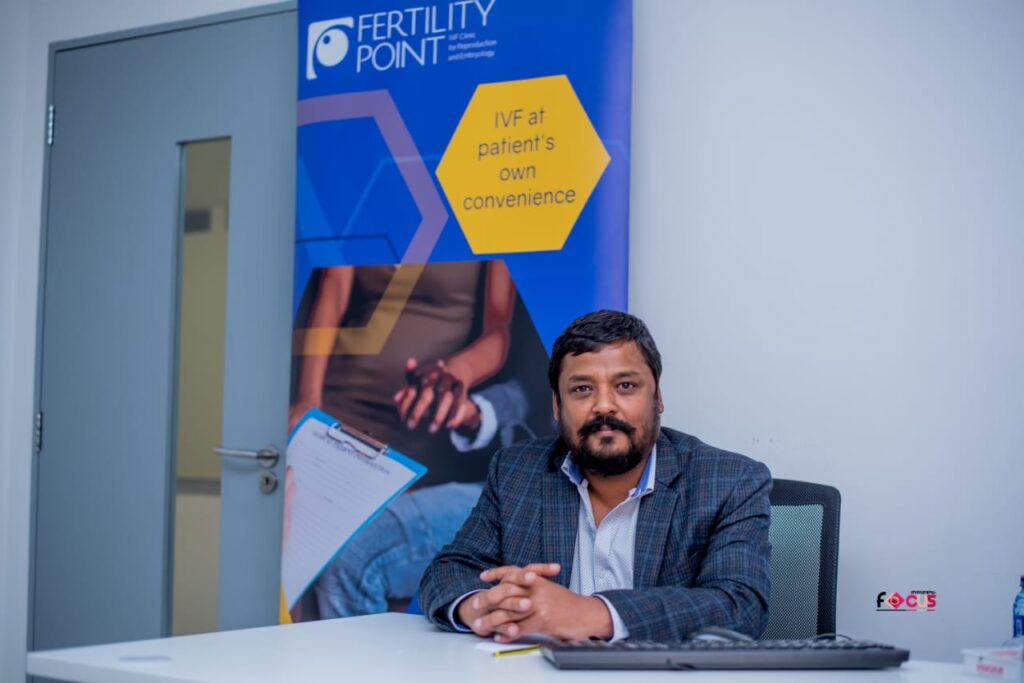All You Need To About IVF and How You Can you Prepare for it

What Is In Vitro Fertilization?
In vitro fertilization (IVF) is a type of assistive reproductive technology (ART). It involves retrieving eggs from a woman’s ovaries and fertilizing them with sperm. The resulting fertilized egg is known as an embryo. The fertilized egg can then be transferred to a woman’s uterus or frozen for storage through a technique known as egg vitrification.
Depending on your infertility diagnosis, IVF can use:
- Your eggs and your partner’s sperm
- Your eggs and donor sperm
- Donated Embryos
- Donor eggs and donor sperm
- Donor eggs and your partner’s sperm
Your fertility doctor can also implant embryos in a surrogate (currently, we don’t have established governing laws in Kenya), or gestational carrier. This is usually a woman who carries the baby till birth for you.
The success rate of IVF varies depending on several factors such as age, previous pregnancies and body weight. It can also be determined by the IVF clinic of your choice as well as the quantity and quality of embryos that are transferred. Here in Kenya, Fertility Point has the highest IVF success rates of 65 % –which is way above the average national and global IVF success rates. The charges of IVF at the Nairobi based fertility clinic starts from Kes 450,000.

In Vitro Fertilization is highly recommended for couples struggling with fertility. Nevertheless, IVF can be costly and invasive depending on the fertility clinic of one’s choice. So many patients often try other fertility treatments first. This may include but not limited to taking fertility drugs or having intrauterine insemination (IUI). During that procedure, a doctor transfers sperm directly into a woman’s uterus.
Infertility problems that may require IVF treatment include:
- Reduced fertility in women over the age of 35.
- Reduced ovarian function
- Damaged or blocked fallopian tubes
- Uterine fibroids
- Endometriosis
- Male infertility, such as abnormalities in sperm shape or low sperm count
- Unexplained infertility
At Fertility Point Kenya, patients are also at liberty to choose IVF if they run the risk of passing a genetic disorder on to their offspring. A test can be done in a medical lab for genetic abnormalities. Then, a doctor only implants fertilized eggs without genetic defects.
Preparing for In Vitro Fertilization
Before commencing the IVF process, a woman first undergoes ovarian reserve testing. This involves taking a blood sample and test the level of FSH – Follicle Stimulating Hormone. The test results give a fertility doctor information about the size and quality of the eggs in question.
A doctor will also examine the woman’s uterus. An ultrasound may be performed to create an image of your uterus. A doctor may also insert a scope through the vagina into the uterus. These tests are critical as they reveal the state of your uterus and help the physician to determine the best way to implant the embryos.
For men, they will need to undergo sperm testing. It entails collection of a semen sample. A state-of-the-art lab like that of Fertility Point Kenya will analyze the shape, size and quantity of the sperm. If the sperm are damaged or weak, a procedure called intracytoplasmic sperm injection (ICSI) may be necessary. During ICSI procedure, a physician injects sperm directly into the egg. ICSI can be part of the IVF process.
Choosing to have IVF is a very emotional and personal decision. There are a number of critical factors to consider. They are:
- How many embryos would you wish to transfer? The more embryos transferred, the higher the risk of a multiple pregnancy. Many doctors won’t transfer more than two embryos.
- What will you do with unused embryos?
- How do you feel about the possibility of having twins, triplets or multiple pregnancy?
- What about the emotional and legal issues associated with using donated sperm, eggs, and embryo or a surrogate?
- What are the financial, physical, and emotional stresses associated with IVF?
How Is In Vitro Fertilization Performed?
There are five steps involved in IVF:
- stimulation
- egg retrieval
- insemination
- embryo culture
- transfer

Stimulation
Normally, a woman produces one egg during each menstrual cycle. However, IVF requires multiple eggs. Using multiple eggs increases the chances of a viable embryo. Fertility drugs are used to increase the number of eggs that the body produces. During this stage, a doctor will perform regular blood tests and ultrasounds to monitor the production of eggs and to know when to retrieve them.
Egg Retrieval
This is known as follicular aspiration. It is normally a surgical procedure performed with anesthesia. A doctor will then use an ultrasound wand to guide a needle through a vagina, into the ovary, and into an egg-containing follicle. The needle will suction fluid and eggs out of each follicle.
Insemination
Here, the male partner gives a semen sample. An embryologist will mix the sperm with the egg in a petri dish in the lab. If that doesn’t produce embryos, a doctor may decide to use ICSI.
Embryo Culture
A doctor will monitor the fertilized eggs to ensure that they’re dividing and developing. The embryos may undergo testing for genetic conditions at this time.
Transfer
When the embryos are big enough, they can be implanted. This normally occurs three to five days after fertilization. Implantation involves inserting a thin tube called a catheter into a vagina, past the cervix, and into the uterus. The doctor then releases the embryo into the uterus.
Pregnancy occurs when the embryo implants itself in the uterine wall. This can take 6 to 10 days. A blood test will determine if one is pregnant.
What Are the Complications Associated with In Vitro Fertilization?
Just like any other medical procedure, there are risks associated with In Vitro Fertilization. These complications may include:
- Miscarriage or loss of pregnancy
- Ectopic pregnancy which happens when the eggs implant outside the uterus
- Damage to the bladder or bowels, which is rare. This causes bleeding and infections to the bladder
- Multiple pregnancies. This increases the risk of premature birth and low birth weight.
- OHSS-Ovarian Hyperstimulation Syndrome. This rare condition leads to accumulation of excess fluids in the abdomen and chest.
Often, patients are faced with an incredibly complicated decision to decide whether to undergo in vitro fertilization, and how to retry if the first or second attempt was unsuccessful. The financial, emotional and physical toll of this treatment might be difficult. It is advisable to speak with the medical staff at Fertility Point to determine what your best treatment options are, and if IVF is the right path for you and your partner. The clinic not only has a support group but also mechanisms to help you and your family journey through this process.
Maximize your chances of a successful IVF via these habits
IVF treatment can be financially, emotionally and physically demanding, but there are steps one can take to prepare for the IVF journey and maximize chances of a successful and healthy pregnancy.
Before starting an IVF journey, our lead fertility experts advise patients to:
- Eat a healthy and well-balanced diet
- Maintain a healthy weight
- Start taking prenatal vitamins
- Stop taking recreational drugs and drinks such as cigarettes and alcohol.
- Reduce or eliminate caffeine intake.
- Avoid travelling to regions or countries that may put one at risk of exposure to infectious diseases which could delay treatment.
Managing stress during the IVF process
Fertility Point physicians also recommend the following routines to reduce anxiety and stress levels before and during the IVF journey. Meditation, journaling and are healthy outlets for managing stress that comes with fertility treatments.
Many patients also turn to holistic and complementary techniques and therapies, such as yoga and acupuncture, to cur anxiety and boost their chances of having a successful IVF cycle.
Educate yourself on the IVF process
Some of the fear and anxiety that comes with IVF can be avoided by having a comprehensive understanding of the whole process. Stress and anxiety usually emanate from fear of potential side effect of the IVF treatment. Before starting IVF, Fertility Point Kenya experts recommend getting in touch with them for support on enquiry@fertilitypoint.co.ke, following its pages on Facebook, Twitter and LinkedIn to help understand the various steps that take place during IVF.
We understand that fertility treatment can be a complex process, so don’t be afraid to ask for help. If you have any questions about the IVF process or would like to start your IVF journey with Fertility Point, please contact us today.





